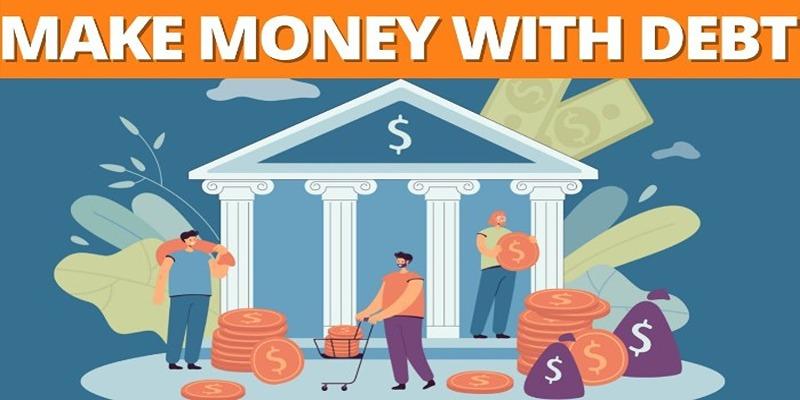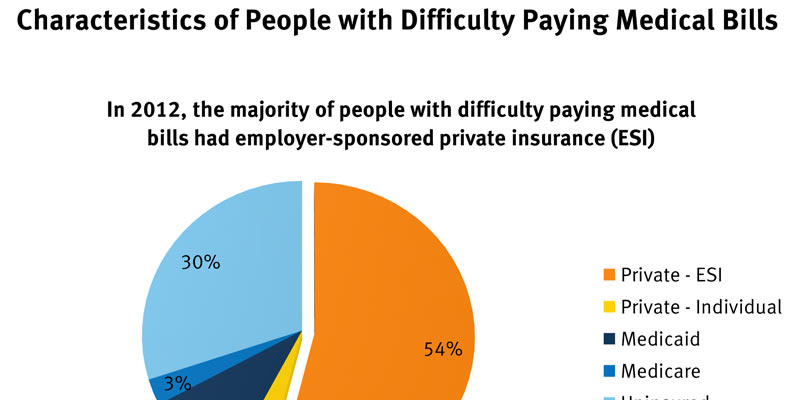
Do you want to make money but feel your debt is holding you back? You may be surprised to learn that you can use your debt as a tool for financial growth. While it’s true that large amounts of debt can put a strain on finances, there are ways to strategically manage it to turn a profit.
In this blog post, we will explore five ways that having some debt can help make more money. From getting cashback rewards and earning dividends on investments to generating passive income opportunities and increasing credit scores, read how using debt can benefit your bottom line.
Leverage Your Debt for Investment Opportunities
One of the most common ways to make money with your debt is to use it as leverage when investing. You can borrow against existing assets and use this additional capital to invest in stocks, bonds, mutual funds, or other investments that generate returns.
This enables you to take advantage of opportunities that may not have been available before and increase your profitability.
Open a Credit Card Rewards Program

Another way to make money with debt is to open a credit card rewards program. These programs offer cash back, travel points, and other incentives when you use your card on certain purchases.
You can then use these rewards to pay off your debt while earning additional income at the same time. Knowing the terms and conditions associated with credit card rewards programs is important, as some may have additional fees or restrictions.
Paying off your balance in full each month is essential to avoid paying interest. When done correctly, a rewards program can help you make money while paying down your debt.
Refinance Your Student Loans
Refinancing your student loans can be a smart financial move that can save you money and make your monthly payments more manageable. When you refinance, you take out a new loan to repay your existing student loans. The new loan often comes with a lower interest rate and better repayment terms, which can lead to significant savings over time.
One of the biggest benefits of refinancing your student loans is the potential to lower your interest rate. If you have good credit and a stable income, you may qualify for a lower interest rate than originally offered when you took out your loans. This can save you thousands of dollars in interest charges over the life of your loans.
In addition to lower interest rates, refinancing can also simplify your repayment process by consolidating multiple loans into one. This means you'll only have to make one monthly payment instead of several, making tracking your payments easier and avoiding missed or late fees.
When refinancing, it's important to carefully consider the new loan's terms and ensure it's the right fit for your financial situation. Make sure to compare offers from multiple lenders, read the fine print, and consider factors like the interest rate, repayment term, and any fees associated with the loan.
Overall, refinancing your student loans can be a smart move that can save you money and make your monthly payments more manageable. It's important to do your research and carefully consider your options to make sure you're making the best decision for your financial situation.
Get a Balance Transfer Credit Card
A balance transfer credit card is a great tool to help you pay off high-interest credit card debt. With a balance transfer credit card, you can transfer the balance of your existing credit card debt to a new card with a lower interest rate or even 0% introductory APR for a certain period.
The main benefit of a balance transfer credit card is the potential to save money on interest charges. If you're carrying a balance on a high-interest credit card, transferring that balance to a card with a lower interest rate can help you pay off your debt faster and save money on interest charges.
Another benefit of a balance transfer credit card is the simplicity of having just one payment each month. By consolidating your credit card debt onto one card, you can simplify your monthly bill-paying process and avoid missed payments or late fees.
Before applying for a balance transfer credit card, it's important to research and carefully consider the terms and fees associated with the card. Look for a card with a low-interest rate or 0% introductory APR for at least 12 months and a low balance transfer fee.
It's also important to plan to pay off your transferred balance before the introductory period ends. If you cannot pay off your balance in full by the end of the introductory period, you could pay even more interest charges than before.
Consolidate Your Debt
Consolidating your debt is a financial strategy that can help you simplify your monthly bill-paying process and save money on interest charges. With debt consolidation, you take out a loan to pay off your debts, leaving you with just one monthly payment.
There are several ways to consolidate your debt, including taking out a personal loan, using a home equity loan or line of credit, or using a balance transfer credit card. Each method has pros and cons, so it's important to carefully consider which option best fits your financial situation.
One of the biggest benefits of debt consolidation is the potential to save money on interest charges. By consolidating your debt into a single loan with a lower interest rate, you can reduce the amount of interest you'll pay over the life of the loan, which can help you pay off your debt faster and save money.
Another benefit of debt consolidation is the simplicity of having just one payment each month. This can help you stay organized and avoid missed payments or late fees.
FAQs
What is debt?
Debt is money that one individual or organization owes to another. This can include loans, credit cards, mortgages, and other forms of borrowing. Understanding how debt works and how it can be used to make money is important.
What are the different types of debt?
Common types of debt include mortgage loans, credit cards, personal loans, business loans, student loans, and auto loans. Each type of loan has different terms and conditions attached to them, so it is important to understand the details before committing to a loan.
What are the risks associated with using debt to make money?
Using debt to make money can be risky, as it involves taking on additional debt to generate income. In addition, if the investment does not generate enough income to offset the cost of borrowing, it could result in a net loss.
Conclusion
Taking control of your debts and managing them strategically may help you to make more money, but it is important to be responsible about this. Before committing to any debt-related financial decisions, thoroughly research your options to ensure you have the best plan.
Ultimately, there are strategies available that can allow individuals to save money and even turn a profit with their debt if managed correctly.



